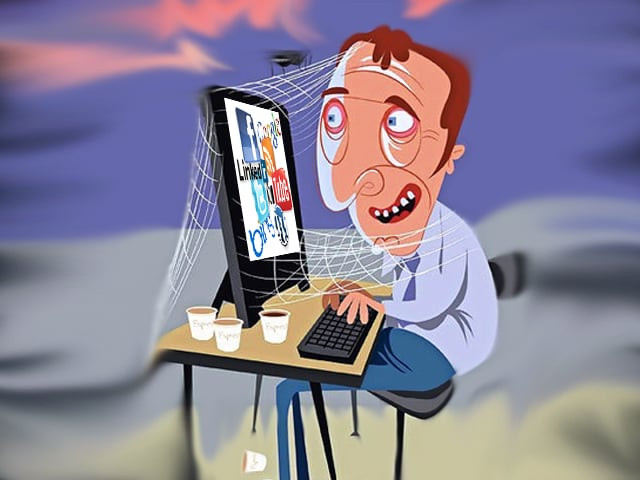You have got to be kidding me, answered a self-declared cyber activist. I feel the real pain of anyone suppressed anywhere in the world, and it is my duty to highlight issues on Facebook, Twitter, and any online discussion forum; my moral duty to speak for the rights of the oppressed.
Such are the thoughts and ideas of a typical self-proclaimed cyber activist who may cross any online boundary to get across his/her point.
It is said that societal norms can determine how individuals utilise digital technology for activism. There are certain expectations regarding how we act, speak, and dress in a society. Expectations may vary amongst different social groups based on factors such as socioeconomic status or the level of education. However, we may see that online communication is often less restricted and individuals feel less bound by norms that they may adhere to in the physical world.
We therefore, often observe certain ‘activists’ even practising hate speech. There may always be a few party crashers in a simple online discussion. Come what may, type whatever, and say it wherever. Zero holds barred.
Is online activism any different from slacktivism?
In fact, online-activism itself is an often debated concept. According to the Merriam Webster definition, activism is defined as,
“A doctrine or practice that emphasises direct vigorous action especially in support of or opposition to one side of a controversial issue”
How does such ‘vigorous action’ translate into real action in the physical world?
Actively pursuing a cause that may really lead to positive change is indeed a noble ideal. But ponder for a minute and decide how much of the cyber/online activism actually yields tangible results besides creating ‘awareness’?
How many have actually gotten off their comfy seats and walked outside to solve problems in their immediate neighbourhood (instead of in another country)?
How many fed a hungry child or decided to allocate some money for a good cause such as education?
How many stood up for the rights of minorities or those marginalised in our local community or our wider society?
How many of us have done something that may start to make other’s lives better?
Societies change when they have a critical mass of people who actually do something with their passions instead of just feeling the pain of other humans. Our world would most likely be a better place when it sees more action and less talk.
The question that has become a focus of research is whether online activism on its own can lead to change?
Critics may rightly argue that social media and people who used the power of such online platforms have toppled oppressive and non-democratic regimes in countries like Egypt. There is little doubt that social media has the potential to create positive as well as negative awareness in a society; but where would the potential be without people actually coming out onto the ground and physically changing things with their own hands?
Had social media been the only ingredient of change, we would have seen model societies emerging wherever social media adoption was high. The following quote sums it all up quite nicely,
“A thought which does not result in an action is nothing much, and an action which does not proceed from a thought is nothing at all.”
We have enormous potential to actually do something about the myriad of issues plaguing our society. Merely sitting, commenting or sharing something may provide a momentary burst of satisfaction, but it may not be enough to actually change something on ground.
On the other hand, we cannot only blame cyber activists for their way of thinking, their intentions and their passion for change. We should start directing attention towards things we all can actually do in real life with our immense energy. Let’s pool resources to build a school in a village nearby, or help improve the ones already there.
Let’s galvanise support for cleaner neighbourhoods by contacting our ‘real’ friends whom we meet face-to-face, rather than merely over the internet and pressing a ‘Like’ button to solve issues across the seven seas.
Think of the group of concerned citizens who via social media organised clean-up campaigns in Pakistani cities. They physically went and changed something in reality instead of merely acting as slacktivists.
Life is too precious to be wasted in front of a screen. The internet screen is only as important, as it benefits us and is used to direct our energies to actions that actually matter. It is what we make of the internet today that will determine the kind of world we give to our children tomorrow.
Follow Laeeq on Twitter @laeeqk
Join us on Facebook for blog updates and more!



COMMENTS
Comments are moderated and generally will be posted if they are on-topic and not abusive.
For more information, please see our Comments FAQ